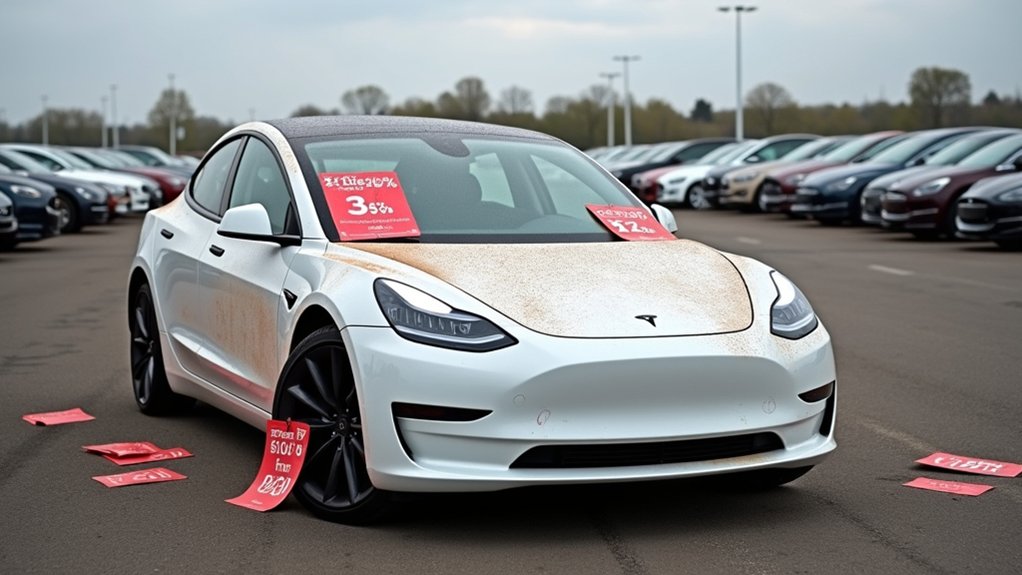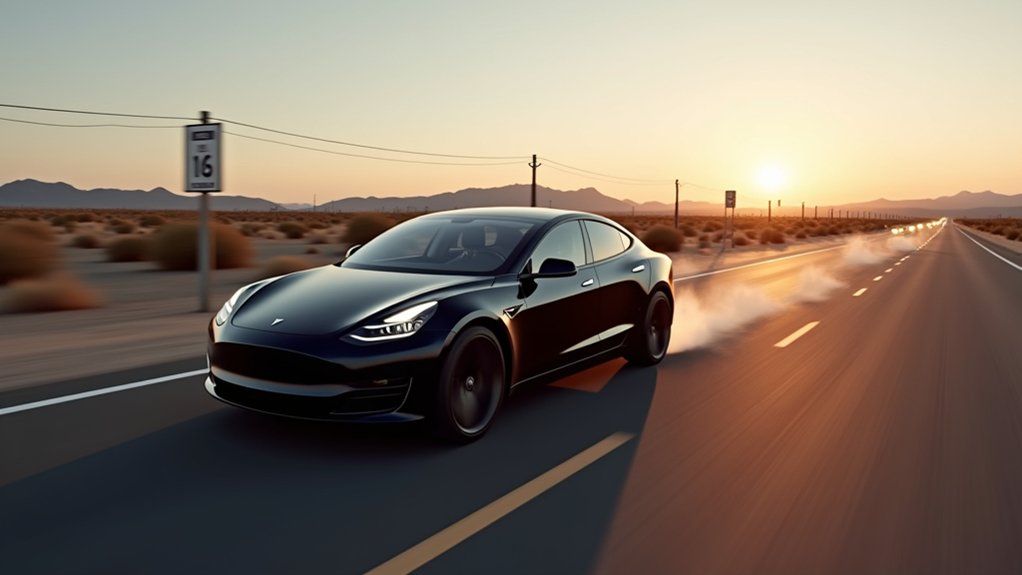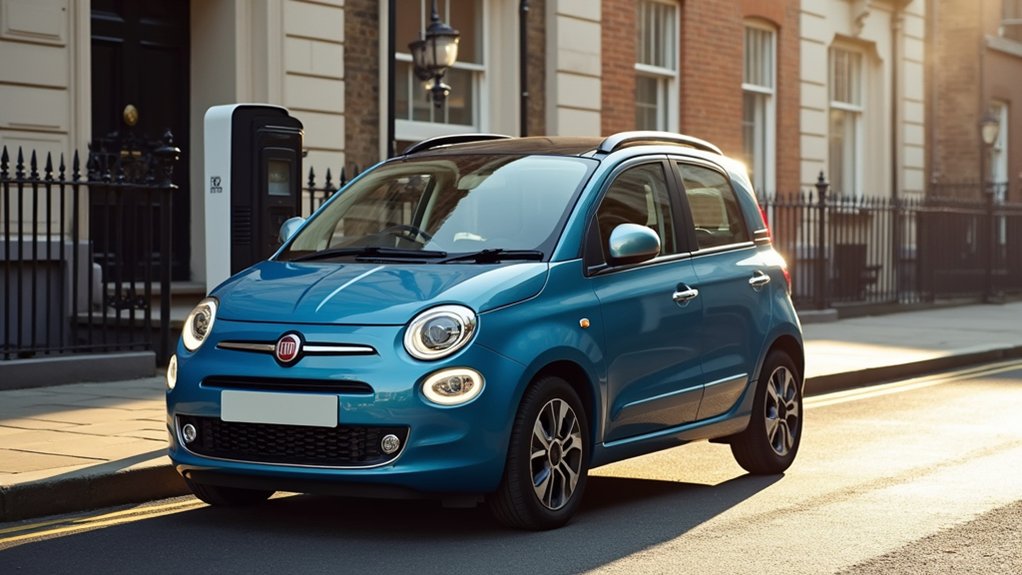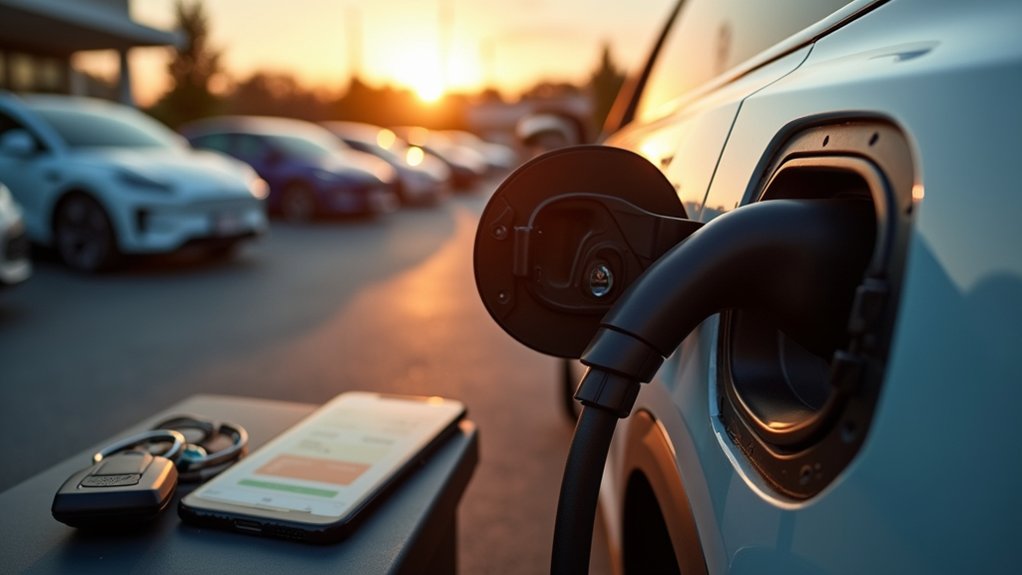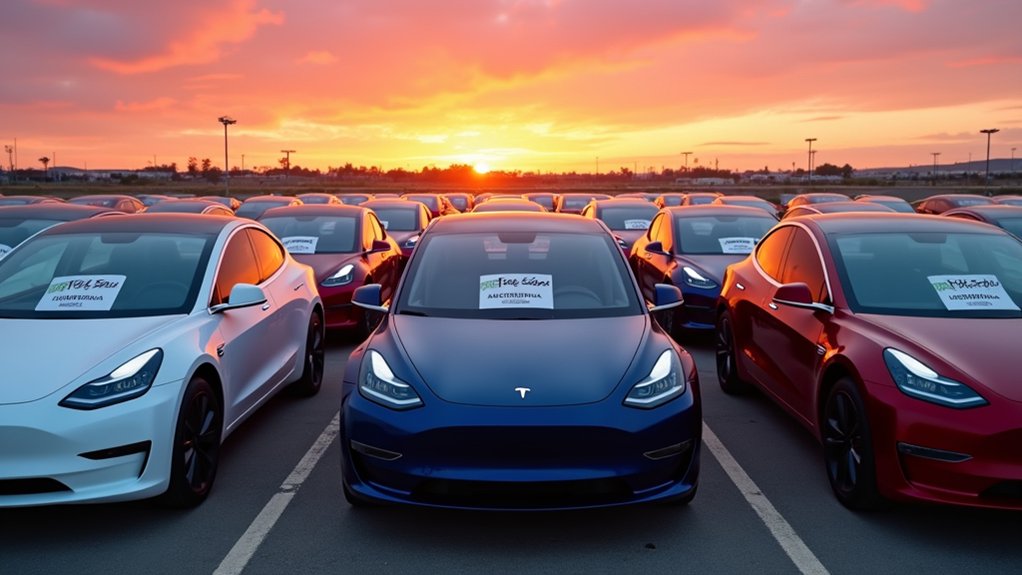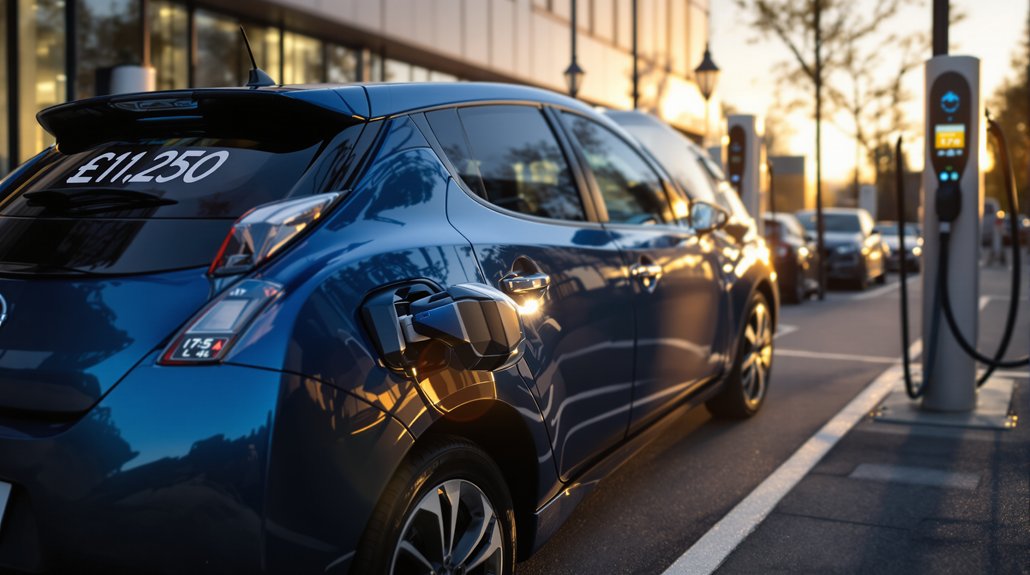The electric vehicle revolution‘s poster child is experiencing a dramatic reversal of fortune in the secondary market. Tesla vehicles, once lauded for their value retention, are now depreciating at an alarming rate, with prices dropping 7.26% year-over-year compared to the broader market’s 2.68% decline. This accelerated depreciation has sent shockwaves through the EV resale ecosystem, transforming Tesla’s once-enviable position into a cautionary tale for investors and owners alike.
The average resale price of a used Tesla has plummeted from over $70,000 in 2022 to approximately $30,000 by early 2025, with Model 3 prices now dipping below the $30,000 threshold. I’ve seen this precipitous 10% value erosion occur in just the past six months, creating a widening $10,000 price gap between used Teslas and competing non-Tesla electric vehicles.
This devaluation stems primarily from market oversaturation. Early adopters upgrading to newer models and dissatisfied owners unloading their vehicles have flooded the market with aging Tesla inventory. Simultaneously, Tesla’s aggressive production output continues unabated, creating a supply-demand imbalance that pressures prices downward.
Tesla’s own pricing strategy has cannibalized its secondary market. Frequent price cuts on new models, particularly the $40,000 Model 3, have eroded used vehicle values. The narrow price differential between new and pre-owned Teslas has redirected buyer interest toward factory-fresh options, complete with updated technology and full warranty coverage. Major rental company Hertz has further saturated the market by selling off 20,000 electric vehicles, significantly affecting supply and pushing prices even lower.
Competing automakers have capitalized on Tesla’s vulnerability. Ford, GM, and Hyundai now offer compelling EVs with improved technology, competitive ranges, and attractive incentives. These alternatives have diminished Tesla’s once-uncontested market position. The impressive growth of competitors like BYD, which achieved 1.1 million units sold in 2025, further challenges Tesla’s market dominance.
Brand perception issues further exacerbate these challenges. Controversial public statements from CEO Elon Musk, service complaints, and high-profile recalls have damaged consumer confidence. Some owners have even gone as far as selling their vehicles due to backlash against Musk. The specialized repair requirements and elevated insurance premiums associated with Tesla ownership create additional barriers in the secondary market.
For potential buyers, this depreciation presents unprecedented opportunities, while current owners face the sobering reality of accelerated equity erosion in what was once considered a premium automotive investment.
